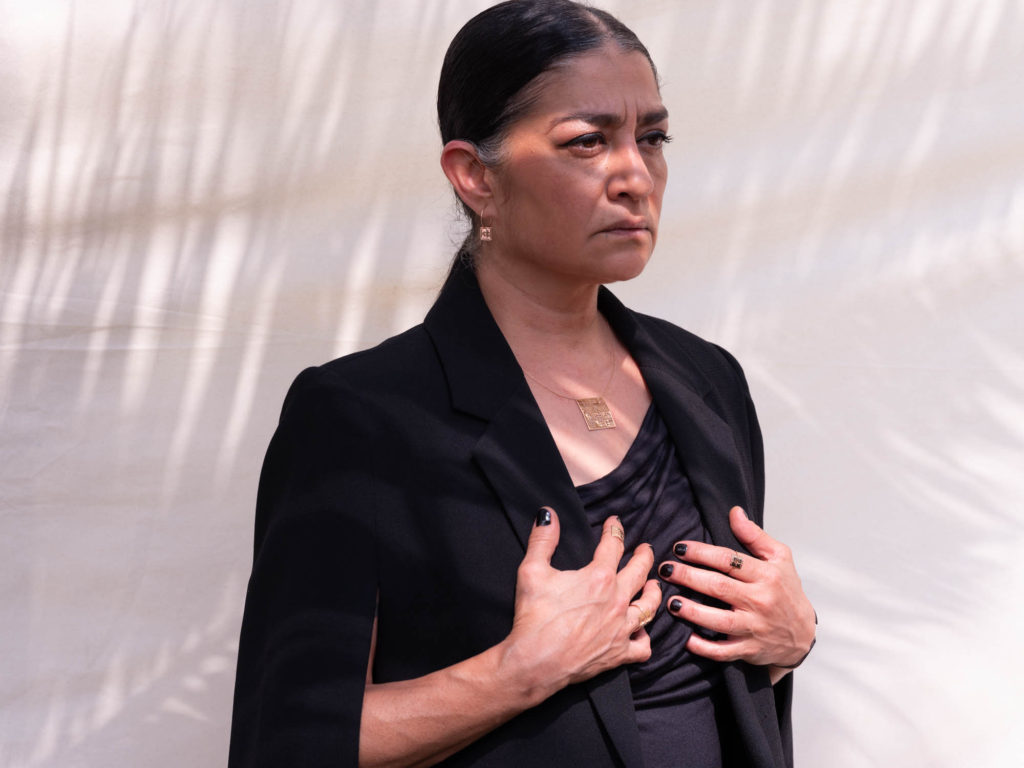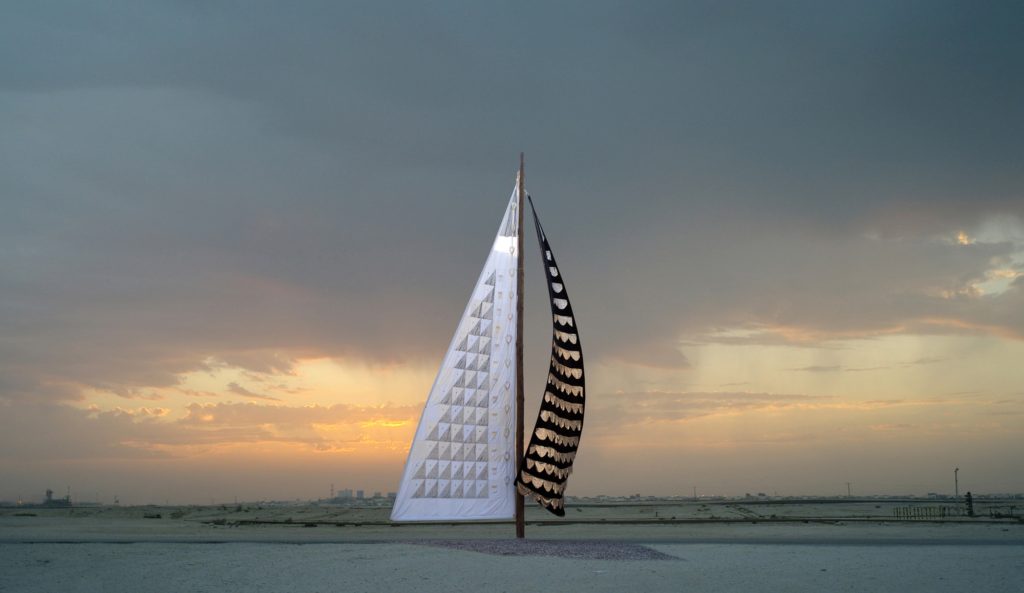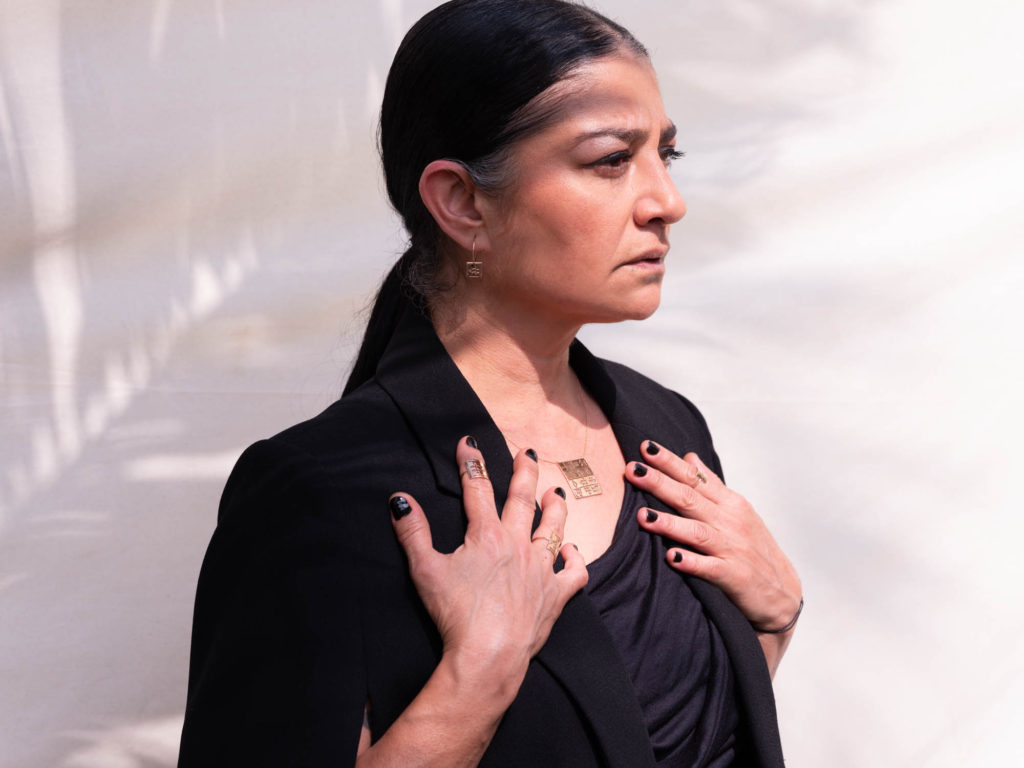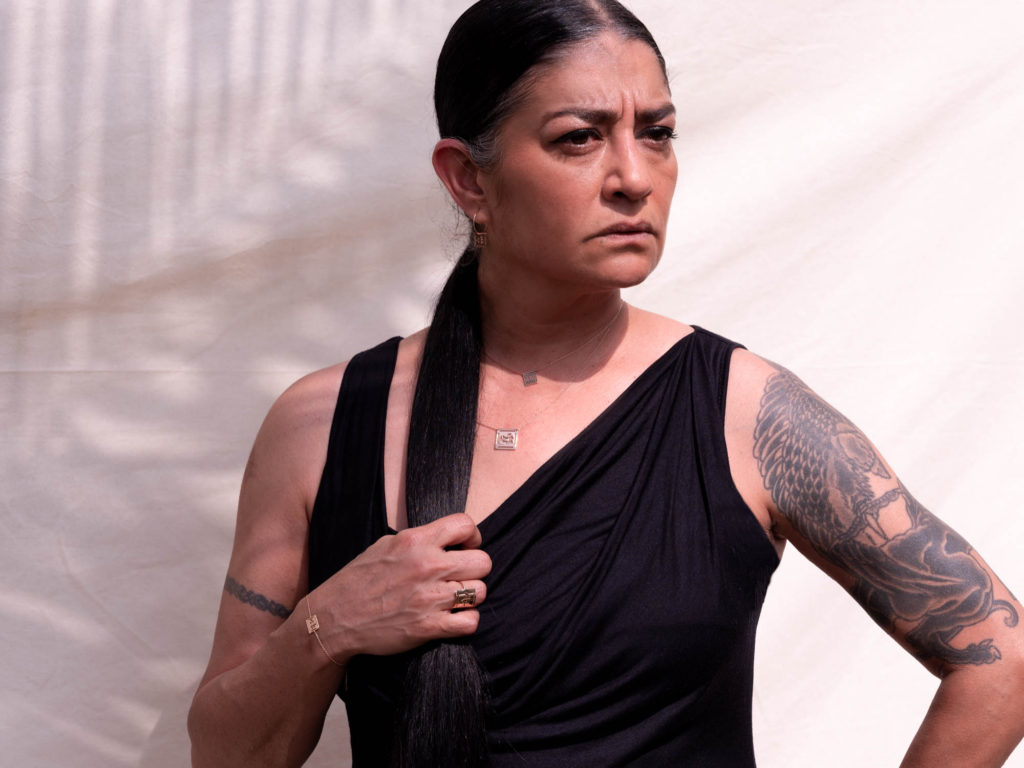A conversation with Ghada Khuji – the stories of her adventures, inspirations and heritage…
Ghada Khunji is a graduate of the Parsons School of Design (1995) and the International Center of Photography’s documentary programme, both in New York. She received numerous awards as a documentary photographer, including the Lucie Discovery of the Year (2006).
In recent years, Khunji has shifted her lens from the peripheral to explore her deepest contemplations on cultural identity and the perspective of women hail.

tinyOm: Thank you so much Ghada. Thank you for coming and joining this creative adventure. It is very special that you collaborate with us today. Can you tell us a little bit about you and your art?
Ghada: My pleasure… I’m kind of your typical story of growing up with a camera in my hand. I think I had my first camera in my hand when I was 6 years old. And then I found my mother’s suitcase full of old negatives, so and that’s where the inspiration came from. I decided at 18 that I was going to go to college abroad and started with doing Public Relations and Business, but realize that my interest really lay in Photography so I went to Parsons School of Design in New York. I first wanted to do fashion photography but then soon realized I was more into the reality, the real people. You know, the forgotten ones, the ones behind the scenes, so I focused on documentary photography and I did that for 25 years! But when I came back to Bahrain I decided to focus on myself instead – whatever inner demons I have, or fears, or things I wanted to express. So I stared to more photo collage, and expanded, you know sort of like Leonardo da Vince did everything, was a man of all trades. I decided not to just focus on photography, but installations and brought me back to fashion by making my own dresses now. And so, like they say “the world is a big oyster”, for me like there’s many pearls in that oyster shell. And that’s what I’m focusing on now.
tinyOm: So you said when you came here you kind of reconnected you art to the Bahraini culture and heritage, can you tell us a little bit how you connected now to the culture and heritage?
Ghada: Well you know, a lot of us travel away to go and study abroad, and for me being away for 25 years I was sort of what they call a ‘third culture child’, you are caught between two cultures. You don’t know if you’re here or there. But where you’re born is so important, because it’s almost inherent in your genes, and so yes it took me a while but when I came back and looked at Bahrain and what’s going around, and the sort of the pearl diving community… it brought me back to what my grandfather used to do, he was a pearl merchant. And so the first piece I did which I feel was very culturely and in my heritage is making two big six-meters sails made of the women in my family, the abayas and the men’s thawb, and I called them mother and father – Baba and Mami. So I brought sort of, not just the time that I’m living in but brought back the history in the culture of my own heritage and my upbringing. So although being abroad and being away for so long, it’s almost like the fire just lit up when I came back and I started to really focus on my own culture.

tinyOm: So we all have kind of a very personal sense of heritage and its meaning like when we’ve been discussing with different people. Its quite a personal definition, it really varies from one person to the next. How would you define it, what is for you a heritage is?
Ghada: I think we can’t escape heritage. You know a lot of us try to sometimes run away from it, but its so instilled in me that I couldn’t help but look at the old stories, the old books, the old negatives, the old pictures that brought me to a sense of like who I really am. You can’t, even though you’re abroad doesn’t mean it changes what happens in the first 5 years or 10 years of your life. This is the land of destiny, the land of immortality, this is where the tree of life is, and so, I don’t know I feel like I’m a goddess within it now. Whereas being away was very important, to also learn from other cultures, but it wasn’t truly the heritage for me. Now I feel like I’m one of the old doors that belong here.
tinyOm: And I feel you have connected very beautifully your personal family heritage with the global island heritage, and that just creates something which is both very personal and very Bahraini in a really beautiful mix.
Ghada: Thank you, and I mean I also think that is what heritage is, it’s to share it with others.
tinyOm: For you its connected really to your culture, your heritage?
Ghada: Absolutely. My culture, my past, who my grandfather was, who my grandmother was. But yet learning, it was important to leave and learn from other people, and then to comeback to sort of the heart and soul of who I really am. Its like opening a new chapter that never opened before.
tinyOm: Is there a specific memory, smell, color, texture that comes to mind – maybe from your childhood, when you think about your heritage or your culture?
Ghada: Well the smells are so interesting, its anything from chicken biryani, to an Indian curry, to the smell of oud and incense that my grandmother used to wear, my mother. Smell is such an important sense, I can smell a perfume now and it reminds me of someone from 30 years ago. And for me, its really the color of this region its brown, its earthy, its rich with hints of color. Its earth, it’s the sand and the dunes and the burial mounds, its really everything, its years and thousands of years of history.
tinyOm: Is there a place that you find very iconic, that kind of embodies all this Bahraini heritage?
Ghada: For me it would have to be Manama, that’s where I was born. In the part of Manama that’s near La Fontaine I was born around there, so still now I can go back and walk around the homes and still see some of them. You know sadly they’re barren, but their soul is still there, so definitely I’m a Manama girl.
tinyOm: One of the collections is destiny, so can you tell us a little bit what destiny evokes for you?
Ghada: Destiny is what you make. Destiny is when you see and visualize who you want to be. You make destiny, destiny does not make you. And so here I am, years later thinking my destiny is meant to be in the US or Europe, but no destiny is here, its home. And destiny is everywhere. I see it going far, I want to be in one of those encyclopedia books. So I thinks that’s what I feel about destiny. And its powerful. Its divine. Its women. All those things are destiny.
tinyOm: And I think you’re really becoming like such an iconic Bahraini, that you are now heritage of Bahrain already when you’re alive.
Ghada: Inshallah, but we are far far away to go. And that’s the thing, never stop believing. Tomorrow really is another day. And dream big. And its time I feel like women need to shine. Like I’m woman hear me roar. I’m Arab woman. I’m every kind of woman. In Bahrain, the beauty of this country is that its multi-cultural, we’re accepting of all – every religion, every color – doesn’t matter, we’re all just one. Its time for us to shine.
Land of Destiny Collection
Ghada Khunji Instagram: @gkhunji


